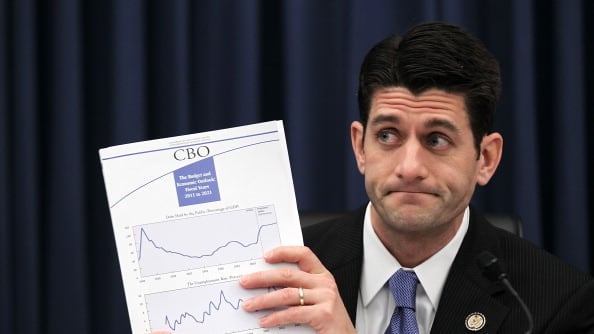
Or as we will now learn to call it, the "Romney plan for a stronger middle class".
Paul Ryan is right that the growth in Medicare costs represents a large problem for the future and must sooner or later be dealt with.
He is right that the solution must take the form of spending restraint; the US can't tax its way out of this mess.
He is right that "premium support"—aka voucherizing Medicare—represents an interesting idea to apply market pressures to Medicare costs.
Here's where Ryan is wrong, and dangerously wrong.
He's wrong to believe that today's economic problems are caused by fears of tomorrow's debts. Ryan's plan implies a promise that we can create jobs in 2013 by restraining Medicare costs after 2023. That's ideology talking, not economics.
He's wrong to say that the US faces an imminent debt crisis. Today's big deficits are the consequence, not the cause, of the weak economy.
He's wrong to treat the Medicare cost problem in isolation from other aspects of the healthcare cost problem. You can't force healthcare costs down generally by dealing with Medicare alone. And if you do deal with Medicare alone, you risk stranding seniors with inadequate resources as healthcare inflation continues to rage.
He's wrong to bet the house on premium support without any certainty that it will work. We should test whether this idea will deliver as promised. (Calling Jim Manzi, author of the new book about the need for public-policy testing, Uncontrolled!)
Above all:
Paul Ryan is wrong, wrong, wrong to imagine that a society can deal with rising social-insurance costs while entirely exempting Republican-voting age cohorts and without asking for anything from its richest people—in fact while simultaneously delivering those people a huge tax cut.
Medicare reform will mean large sacrifices for younger and poorer Americans, exactly the people who have lost most in this recession and the slow-growth years before the recession.
A president cannot ask that generation to bear all the remaining burden of sacrifice alone. You can't lead the battle for deficit reduction from the rear. Yet that is exactly the proposition embedded in the Ryan plan. That's bad politics—and worse governance.






